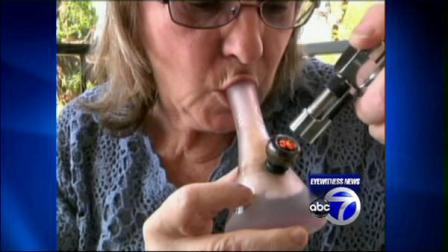“The medicinal use of cannabis has been debated by clinicians, researchers, legislators and the public at large for many years as an alternative to standard pharmaceutical treatments for pain, which may not always be effective and may have unwanted side effects. A new study by McGill University Health Centre (MUHC) and McGill University researchers provides evidence that cannabis may offer relief to patients suffering from chronic neuropathic pain.”
“This is the first trial to be conducted where patients have been allowed to smoke cannabis at home and to monitor their responses, daily,” says Dr. Mark Ware, lead author of the study, who is also Director of Clinical Research at the Alan Edwards Pain Management Unit at the MUHC and an assistant professor of anesthesia in McGill University’s Faculty of Medicine, and neuroscience researcher at the Research Institute of the MUHC.
In this study, low doses (25mg) of inhaled cannabis containing approximately 10% THC (the active ingredient in cannabis), smoked as a single inhalation using a pipe three times daily over a period of five days, offered modest pain reduction in patients suffering from chronic neuropathic pain (pain associated with nerve injury) within the first few days. The results also suggest that cannabis improved moods and helped patients sleep better. The effects were less pronounced in cannabis strains containing less than 10% THC.
“The patients we followed suffered from pain caused by injuries to the nervous system from post-traumatic (e.g. traffic accidents) or post-surgical (e.g. cut nerves) events, and which was not controlled using standard therapies” explains Dr. Ware. “This kind of pain occurs more frequently than many people recognize, and there are few effective treatments available. For these patients, medical cannabis is sometimes seen as their last hope.”
“This study marks an important step forward because it demonstrates the analgesic effects of cannabis at a low dose over a shot period of time for patients suffering from chronic neuropathic pain,” adds Dr. Ware. The study used herbal cannabis from Prairie Plant Systems (under contract to Health Canada to provide cannabis for research and medical purposes), and a 0% THC ‘placebo’ cannabis from the USA.”
Read more:http://www.sciencedaily.com/releases/2010/08/100830094926.htm


